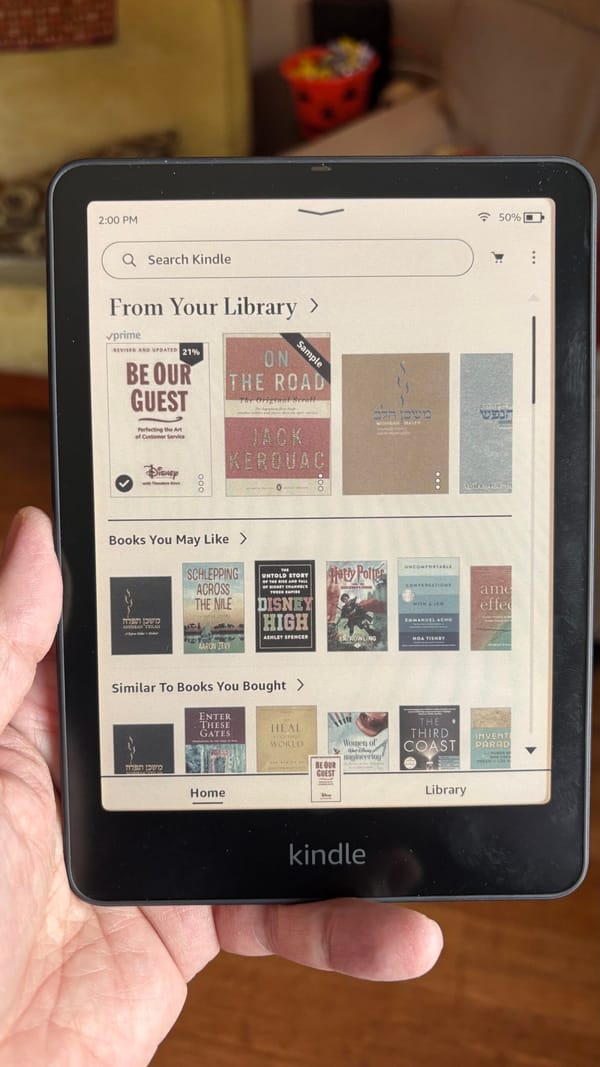I'm Not a Mac #2--I Am a Future PC: Why I'm Dumping Apple after 15 Years
I am a future Windows PC user and that is that. After a 15-year relationship with all things Apple, I've finally had it with the Steve Jobs 'you'll use your computer they way we tell you to use your computer' method of customer relations.

This post is part of my "I'm Not a Mac" series, chronicling my controversial migration away from Apple Computer after 15 years as a Mac user. Find other entries in the "I'm Not a Mac" series archive.
[Welcome to my readers from MacSurfer's Headline News, Applelinks.com, and Low End Mac. Don't hate--trust me, I'm as surprised at my decision as you are...]
I am a future Windows PC user and that is that. After a 15-year relationship with all things Apple, I've finally had it with the Steve Jobs "you'll use your computer they way we tell you to use your computer" method of customer relations.
In June, I blogged about my effort to pare down my electronic lifestyle. In a bid to make it easier for my ADHD self to manage the sea of information in which I swim--or sink--on a daily basis, over the summer I did what most mere mortals dream of doing: I migrated to a single email address and telephone number. I dumped my Vonage number, along with Apple's Mail and iCal programs. In their stead, I routed all my calls to my iPhone and let myself succumb to life in the Google cloud.
My past four months of being a Gmail and Google Calendar user have been transformational. The ability to manage my mail, appointments, and address book seamlessly whether on my laptop or mobile phone and sync most of those items in real-time made life a lot easier for me. It also made me wonder at length why I had to use third-party solutions to do so.
Sure, I could have paid an annual subscription fee to use Apple's MobileMe syncing service. But that wouldn't have changed the fact that Google's web apps are more robust than Apple's desktop counterparts--not to mention free. That got me thinking about all the times in the recent past I've felt hampered by Mac software.
Having owned about a dozen Macs in the past 15 years, I long considered myself a staunch Apple evangelist. But being a Mac user was a lot more fun before the platform became mainstream. Back in the days when the media was still placing bets on when Apple would finally keel over and die, there was a sense of camaraderie between computer company and user. Right up until Steve Jobs made silver the new beige, the almost holy triumvirate of Apple, Macworld magazine, and a largely professional user community vibrated with the sense that if we all stayed on each other's side, computer miracles would happen.
What seems to have happened, instead, is that Steve Jobs decided to make the needs of occasional home users more important than the needs of savvier, longtime Apple adherents. Since the company began concentrating so wholly on attracting PC converts, Mac software solutions have turned into what in August Wired magazine termed good-enough tech. As long as college users could figure out how to play mp3s, soccer moms how to schedule car-pool days, and grandparents how to use email, Apple could garner more market share.
Apple's solution to accomplish all this: creating a suite of closely interlinked programs that met the basic needs of average users--and not much more. Sure, those users might end up so deeply enmeshed in an Apple-only universe that they might never again consider living life without an "i" in front of it. But how else to keep them buying expensive, Apple-branded hardware?
Although I have long been a power user, relying on my Mac to work, play, and manage most aspects of my life, the above paragraph described me for years. Especially after the even more hermetically sealed iPhone hit the market. Sure, I wanted real-time, platform-agnostic control over my email, the ability to manage my own photo folders, and access to "un-approved" software on my mobile phone. But once you've drunk the Apple Kool-Aid, it's really hard to yank the computer company's weedy tendrils out of the firmament of your daily life.
Much as Apple likes to market itself as the answer to allegedly closed-minded Microsoft, to a regular Mac user, when it comes to using your computer it can often feel like it's either Apple's way or the highway. It's one thing to regularly ignore the needs of users by releasing software and system updates that just as regularly break popular third-party applications and add-ons (back in the days of camaraderie--when Macs were still fun--this didn't happen with such regular frequency.)
It's quite another to tell users that if they try to put unapproved software on their $400 cell phones (via iPhone OS jailbreaking), you may render their phones permanently inoperable. For what reason? Spite? Control?
More likely, for the mere whim of it all. Earlier this year, the Times of London ran a rare exposé on the highly secretive Steve Jobs. After recounting that Apple tried to get the story killed twice, the article referenced multiple sources familiar with Jobs to come to one conclusion about him: that he's a raging narcissist. The paper noted that Job's likely personality disorder could be what makes him such a strong industry leader. Yet it could also explain why any use of Apple hardware or software not personally touted by Jobs or his lackeys at a press event ends up impossible to pull off without putting your warranty--or purchase price--at risk.
I'm glad Jobs finds using Macs exclusively in his approved, cripple-ware ways so fulfilling. I, however, don't. The ease of use I felt with Google's software solutions motivated me to perform an ongoing audit of all the Apple software I regularly use. I wanted to determine whether third-party applications might better suit my needs.
As it turned out, in almost all cases the answer was a resounding yes. Since June, I've dumped the hard-to-customize Safari and its overly-simplistic RSS reader for the highly extendable Firefox browser and the equally robust NetNewsWire. I replaced Pages (and Word) with GoogleDocs. I ditched the standard Mac application launcher and switcher, the Dock, for the infinitely more useful DragThing. And at long last, I retrieved my 15,000 photos out of iPhoto's sealed library and put them back where they belong--in a hierarchical folder archive categorized by me and now ably browsed with Picasa.
I deferred to the ease and utility of iTunes. But that's about it. I now have the most platform-agnostic software suite I've ever used on a Macintosh. And that got me thinking even further. If my electronic life has been rendered easier by such a significant shift away from Apple software, what would happen if I made the ultimate switch of all? But it's not like I'm foolish enough to go near the universally panned Vista or the by-now aged Windows XP.
And then surprise of surprises, last month Windows 7 was released to rave reviews, including Wall Street Journal Mac fanboy Walt Mossberg calling it as good as Mac OS X. That pretty much sealed the deal for me. I loved being a Mac user when it felt like Apple loved me back. But if there's one thing I hate, it's feeling like I'm being used. In this case, I feel used by Steve Jobs who must assume that no matter how marginalized he makes longtime users feel in his cripple-ware quest to increase market share, they'll always stick around.
Sorry, Steve. I'm out of the magic Kool-Aid. I no longer feel compelled by your patented reality distortion field to make your company any additional profit at the expense of the daily ease of use of my own computers. You know, the ones I paid for, own, and frankly have a right to use however I see fit?
In the near future I'll install Windows 7 on my Macbook in a virtual environment to get up to speed on how the modern PC platform works today (after all, it's been a long time.) Then, thanks to Apple's 2005 shift to Intel chips, Windows 7 will become my main Macbook operating system. And if you hadn't guessed by now, after that my next computer will be a PC.
My iPhone isn't left out of my back-migration, either. Apple's heavy-handed control of the applications I'm "allowed" to use on the device--not to mention two years of frustrating-to-nonexistent AT&T signals in major cities across America--won no points with me, either. I'm shifting my calls to a nifty, new, platform- and device-agnostic Google Voice number. That way, when I break my AT&T contract and buy a new open-source Verizon Droid, my callers won't notice a difference.
But I sure will.




